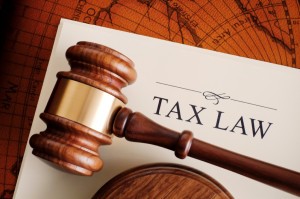
Both Washington state corporations and limited liability companies can elect to use the tax accounting rules described in Subchapter S of the Internal Revenue Code to save thousands in taxes each year. These corporations and LLCs, which are commonly called S corporations once they’ve made the election, become small business corporations in the eyes of the Internal Revenue Service.
Note: I’ve got a long page here that describes just what the S corporation tax accounting treatment does.
Which LLCs and Corporations Are Eligible?
In order to become an S corporation, a Washington corporation or LLC must meet several requirements.
- All shareholders (and shareholder spouses in community property states like Washington) must consent to the S election.
- The corporation or LLC electing S status must have only one “class” of stock ownership treating all members the same way.
- The corporation or LLC generally can’t have more than 100 shareholders (except that families of shareholders count as one shareholder for purposes of this test).
- Shareholders in the corporation or members in the LLC must generally be either U.S. citizens or permanent residents, estates of U.S. citizens or permanent residents, or certain trusts and charities.
Timing the Subchapter S Election
To make the election to be treated as an S corporation, you should file Form 2553 with the Internal Revenue Service by 15th day of the third month after the tax year for which the S election is to be effective starts.
For example, if a corporation or LLC exists on January 1, you should file the 2553 by March 15 of that year. If the corporation or LLC comes into existence on June 1, you should file the 2553 by August 15 of that year.
Two Timing Wrinkles
Let me mention two other wrinkles related to the Subchapter S election.
The first wrinkle? Currently, the IRS is very, very, almost pathetically lenient about late Subchapter S elections. If you want to make a late Subchapter S election, you need to locate the most up to date rules for making a late election and then follow them precisely. But if you do that, you should find yourself able to make very late elections. (At the time of this original post, the rules for late election relief appear in Rev. Proc 2007-62.)
The second wrinkle concerns LLCs. Even without the late election relief stuff, you can (for reasons too complicated to go into here) always make an S election for an LLC that becomes retroactively effective 75 days back. In other words, if you had a Washington LLC in place on January 1 but then near the end of the year (say November 15) you decided you wanted to make an election. You could go back 75 days from November 15 to September 1.
Again, note that this weirdness is something different that the late election relief you get by following the rules provided in Rev. Proc 2007-62.
You may want to ask your tax advisor for more information, but the “start date” for the 75-day count down starts on the effective date of your Sub S election.